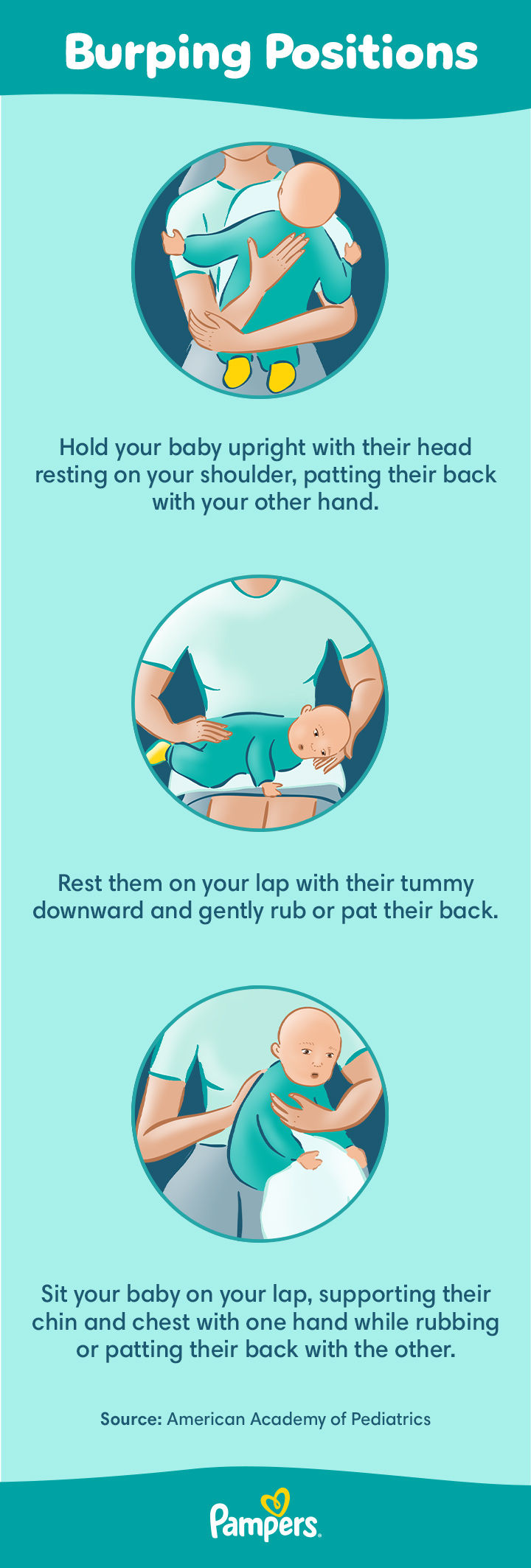
The Ultimate Guide to Burping Your Baby: Techniques, Tips, and Why It Matters
- Solana Oluwagbemisola Adebusola

- Nov 11, 2024
- 3 min read
Babies must be burped, sometimes often, to remove trapped gas, which is one of the first things new parents learn. Burping is a quick and easy method to help newborns who are uncomfortable, especially after eating, feel better. This post will explain the fundamentals of burping your child, including why it's important and how to experiment with different burping methods to see which ones suit you and your child the best.
Why Do Babies Need to Be Burped?
Babies, particularly newborns, are prone to swallowing air while eating, whether bottle-fed or breastfed. If this trapped air is not released, it can cause bloating, discomfort, and even fussiness. Burping relieves gas by bringing it up and out, minimizing the likelihood of spit-up and gas pains that can cause discomfort in your baby.
When to Burp Your Baby
When to burp your baby depends on how they are fed and their specific needs. Here's some general guidelines:
Breastfed Babies: Burp them when switching breasts or if they appear fussy or uncomfortable during feeding.
Bottle-fed Babies: Burp them every 100mls while feeding or as needed, especially if they appear uncomfortable. You will also observe indications from your baby; if they begin wiggling, pulling away, or appear uncomfortable during feeding, they may require a burp break.
How to Burp Your Baby: Different Techniques
Each infant is unique, so it may take a little effort to determine which strategy works best. Here are some tried and true burping positions:
1. Burp over the shoulders: This conventional burping strategy is effective for many newborns.
a. Rest your baby's chin on your shoulder while supporting their back and head.
b. With your other hand, softly touch or rub their back.
c. Place a handkerchief on your shoulder to catch any spit-up.
2. Sitting Up Burp: This position is ideal for babies who appear to want a bit more independence:
a. Position your kid on your lap, facing away from you.
b. With one hand, support their chest and head while softly cradling their jaw (avoid pressing on their throat).
c. Use your other hand to softly touch or rub their back.
3. Lying on your lap and burping: This position is ideal for small newborns or those who have reflux concerns.
a. Place your infant face down on your lap, their tummy on your leg.
b. Keep their head slightly up over their body.
c. Carefully pat or rub their back in a circular motion.

How Long Should You Burp Your Baby?
Most newborns burp within a few minutes, however some take longer. If you've attempted burping for a few minutes and failed, try a different posture or wait a little longer before attempting again. Remember, babies are still learning to coordinate their muscles, so patience is essential.
What if Your Baby Won’t Burp?
Some newborns are inherently less prone to swallowing air, and others don't need to burp as frequently. If your infant is not burping but appears to be content, you can usually omit it. However, if they appear fussy or uncomfortable, consider the following:
Switch Positions: If one method fails, try another. Babies may require a different angle to release trapped air.
Gentle Movements: Try walking around with your baby upright or softly bouncing while holding them securely.
Time: Allowing them to sit upright for a few minutes after feeding can help them naturally expel air.
Tips for Successful Burping
Use gentle and consistent pats.
Avoid harsh pats on your baby's back; a calm, continuous rhythm is generally more useful.
Be calm and patient: Babies can sense when you are uptight or frightened, so try to be calm and patient. Burping does not always work straight away, which is alright!
Look for Patterns: Some babies need to burp frequently, while others need occasionally.
Pay attention to your baby’s cues and adjust accordingly.
Do I Need to Burp My Baby at Night?
Yes, overnight burping remains vital, particularly for newborns. However, as your baby grows bigger, you may notice that burping during nocturnal feedings becomes less necessary.
When Can I Stop Burping My Baby?
Most newborns outgrow the need for frequent burping around 4-6 months, as they gain more control over their digestion and swallowing. If your baby begins to sit up on their own and displays less signs of pain after feedings, you may be able to skip it.
What if My Baby Spits Up While Burping?
Spit-up is typical and nothing to be concerned about, especially in babies. Just keep a cloth nearby and don't be frightened if it happens frequently.
Burping is one of those tiny but vital actions that can significantly improve your baby's comfort and enjoyment. It takes experience and patience, but you'll eventually find the rhythm that works best for you and your kid. Happy burping!
Purchase your E-journals from our store. Keep memories of your pregnancy journey and the growth and milestones of your baby.











Comments